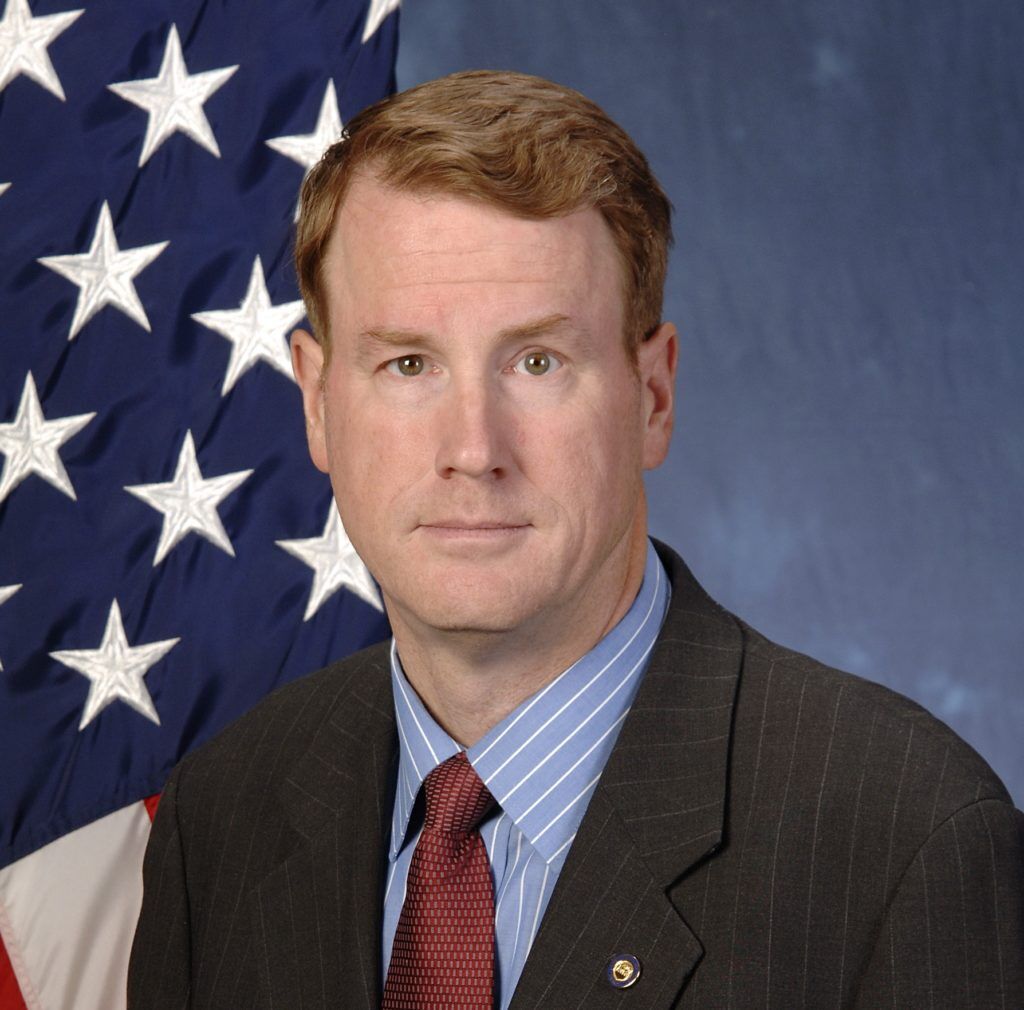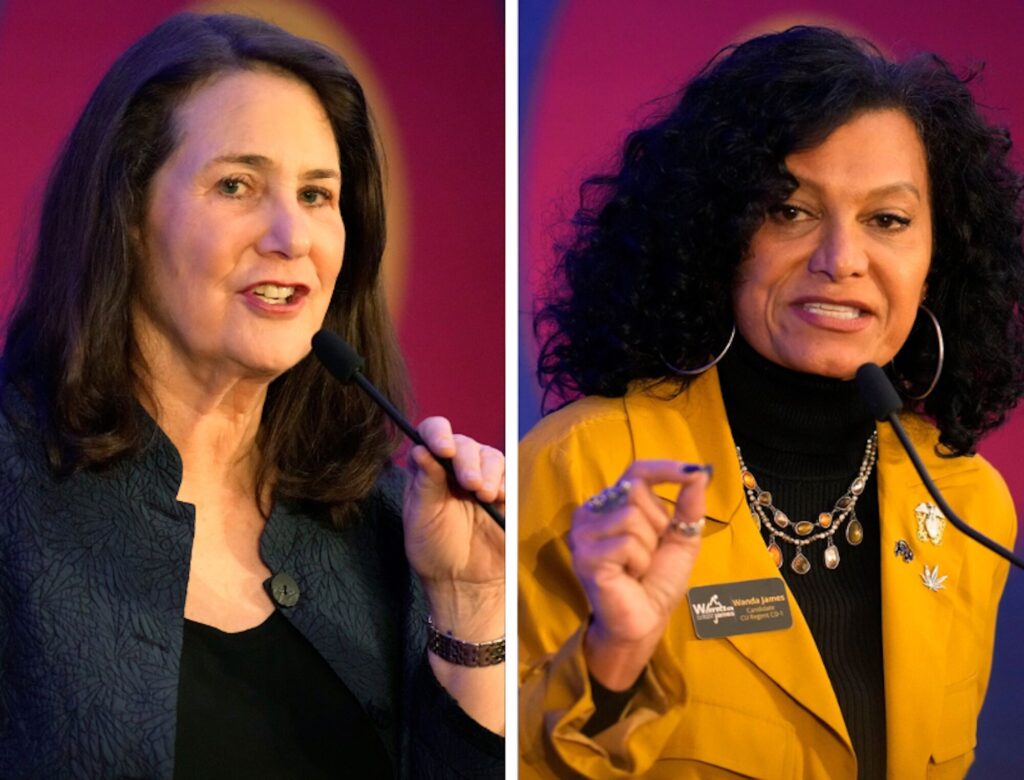BIDLACK | Polis has a Jeffersonian epiphany


Thomas Jefferson is one of the most interesting figures in American history. My own work during the past 25 years performing a one-man show as Alexander Hamilton has oft led me to study the man from Monticello closely, as Hamilton and Jefferson were great rivals. Jefferson called Hamilton the “colossus,” and Hamilton had nastier things to say about old Thomas.
The core of their disagreements came from their individual views of human nature. Jefferson believed that humankind is basically good, and if government gets out of the way, greatness is possible. Hamilton, on the other hand, as he famously wrote in Federalist No. 6, believed that men are “ambitious, vindictive and rapacious.” More simply put, Hamilton believed that people, on the whole, are not especially nice, but rather are greedy and will work to get more than their share of wealth, power, and such. He believed that with a strong government tempering those negative passions, greatness was possible. And those beliefs led to Jefferson wanting a nation of farmers and Hamilton wanting a nation that makes stuff.
Hamilton, of course, was correct (Ed: I thought you’d say that).
Though Jefferson has his many defenders, we live in a Hamiltonian nation, with a strong government and we have achieved far more than the agrarian-loving Jefferson would have thought possible. And as you may ache for the loss of a Jeffersonian Shangri-La, recall please that every idyllic agrarian utopian society you can mention from history eventually collapsed, often into despotism.
But here’s the thing: once Jefferson became president and had to actually govern, he adopted a very Hamiltonian way of doing things. The Louisiana Purchase, for example, was an outrageous use of executive power that the philosophy of Jefferson would seem to oppose. And yet, Jefferson, as president, took quite a few actions that were “Hamiltonian” in terms of the impact on the people and the role of government. More simply put, when Jefferson was confronted by the reality of actually having to govern, he reverted to the Hamiltonian mindset that made (and still makes) good government possible.
A recent Colorado Politics story might just be evidence that our terrific governor Jared Polis had a recent Hamiltonian inspiration regarding ozone rules and the EPA. He, like Jefferson, had to decide on how to actually get things done, in the face of a complicated and difficult issue.
Back in 2019, Polis was far more aggressive in his views on curtailing ozone pollution in the Denver metro area. He supported (and I suspect still supports) aggressive efforts to improve air quality, as do I.
But now in 2022, Polis has engaged with the EPA to the point of threatening a lawsuit over the possibility that Denver’s poor air quality could trigger an EPA requirement for cleaner (and more expensive) gas to be sold in the metro region. Critics might wrongly claim that this shows Polis to be a person who lacks conviction on air quality, but what his actions really show is that Polis is aware that, when in office, very few issues are clear, simple and uncomplicated.
What changed from 2019? Well, gas prices.
In 2022, while gas prices are coming down steadily (thanks Biden!) they are still significantly up from what they have been in recent years. I don’t doubt that, in his heart, Polis favors strong clean air rules. But he also understands that for regular folks just trying to get by, the gas price increase is pretty painful, especially for those whose work involves driving a great deal.
Polis also understands that the higher-grade gasoline doesn’t just magically appear from pumps. We in Colorado get two-thirds of our gas from out of state refineries, and it is not immediately clear that those producers would jump at the chance to make a more expensive blend for the metro area, should the EPA rule be applied. And the other third of our gas comes from one plant in Commerce City, and whose to say what that one facility would or could do.
Polis’s action, or rather his threat of an action, is not a back peddle nor is it a permanent abandonment of wanting high quality air for those of us that spend much of our time breathing. Rather, it is likely a temporary acknowledgment that smart government requires leaders who are able to understand that issues change over time, and the exigencies of one point in time might be different from a later time.
Polis seems to have taken a page from Jefferson’s example and is governing based on what is going on in real life, rather than taking an extreme position that might seem principled but is also painful for too many.
We only had one truly “Jeffersonian” president (that is, a president who followed TJ’s theoretical example and never compromised) and that was James Madison, whose time in office saw the invasion of Washington D.C. by the Brits who burned down the White House. Pragmatism is good in people, and it is vital in government.
We must still aim for things like ozone reduction, but we must also understand in particular moments, and for hopefully transient reasons, policies must adjust to the time. Polis has done so regarding the EPA, and that shows quality leadership.
Hal Bidlack is a retired professor of political science and a retired Air Force lieutenant colonel who taught more than 17 years at the U.S. Air Force Academy in Colorado Springs.












